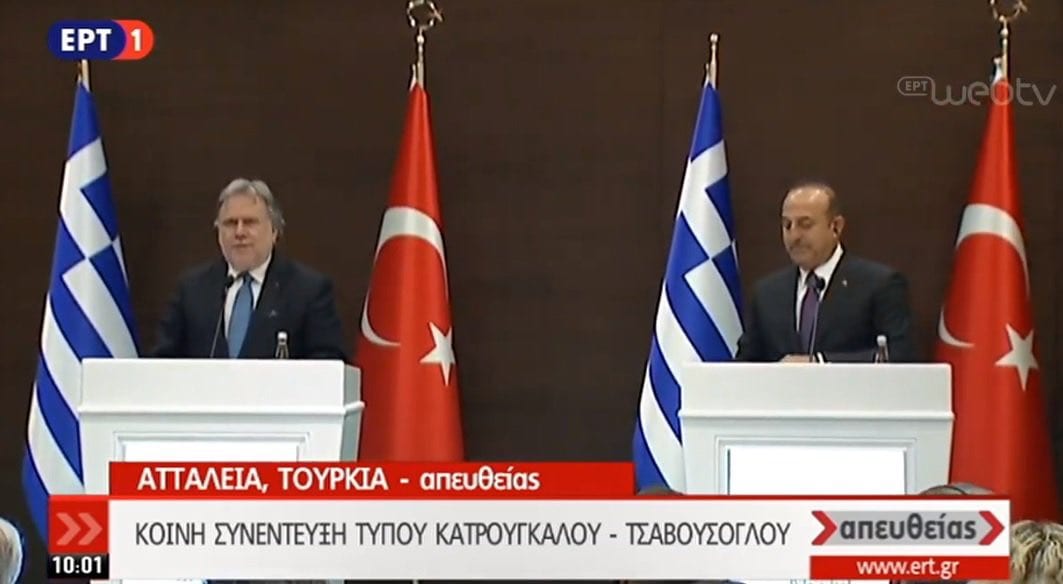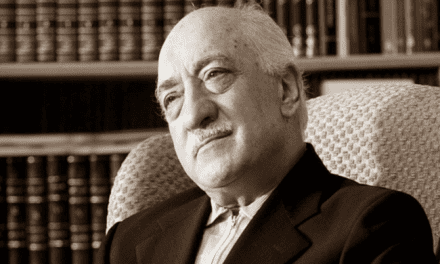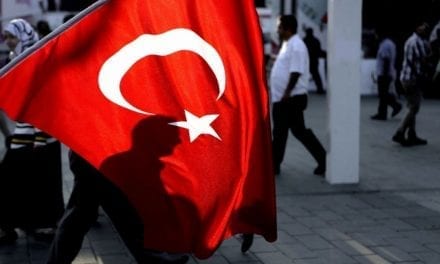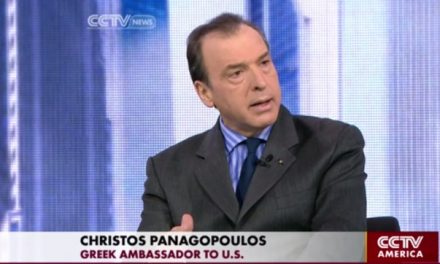Georgios Katrougalos also tells the EU to move forward with accession talks for North Macedonia.
By JACOPO BARIGAZZI, Politico.eu
Greece’s Foreign Minister Georgios Katrougalos wants Brussels to keep the door open for Turkey to join the bloc.
In an interview with POLITICO, he said that he still believes Turkey’s future is in the European Union despite the country’s descent into authoritarianism and its controversial decision to drill for gas in Cypriot waters.
“We’re among the few European countries that still believe in that,” Katrougalos said, referring to Turkey’s long-stalled accession bid.
But he added: “They must first respect their obligations,” stressing that accession is contingent on Ankara respecting “not just international law but also the rule of law and human rights.”
The question of Turkish accession was a contentious issue for the EU’s member states from the start, but has become even more controversial in recent years as President Recep Tayyip Erdoğan moved to consolidate his power, dismantling Turkey’s fragile democracy in the process.
Some countries, such as Austria, say the EU must stop accession talks “immediately.” It’s a demand echoed by Manfred Weber, lead candidate for Commission president of the center-right European People’s Party (EPP) — which is projected to remain the European Parliament’s largest bloc in this month’s European election.
Weber has repeatedly said that as Commission president, he would drop the negotiations, telling a gathering of Bavarian conservatives in March: “If I become Commission president, then I will instruct the offices in Brussels to end the talks with Turkey on accession.”
Unanimity issues
Yet it’s not that easy, as Katrougalos’ affirmation of Greek support for continued negotiations underscores.
Ending Turkey’s accession process would require the unanimous approval of all EU member states — and a number of countries, such as Greece, Bulgaria and Cyprus, support the EU dream of their neighbor Turkey, provided Ankara fulfills all the necessary conditions to join.
In Greece, cancelling accession talks isn’t even backed by New Democracy, the Greek center-right formation that belongs to Weber’s EPP. (Katrougalos is a member of Syriza, the far-left party of Prime Minister Alexis Tsipras.)
Turkey’s membership prospects remain dim. Accession talks stalled not long after they officially launched in 2005, and any progress has come at a glacial pace. Of the 35 accession chapters, only one has been completed so far; many have not even been opened.
Calls to end or freeze talks have grown louder since 2016, when Erdoğan responded to a failed coup with a sweeping crackdown. The European Parliament has requested for the negotiations to be suspended.
Ankara’s recent decision to drill for gas in waters surrounding EU member Cyprus — whose northern half has been occupied by Turkey for decades — has prompted an outcry from Brussels as well as Washington.
Katrougalos believes Turkey’s move stems from the country feeling left out, noting that Cyprus has pushed for energy cooperation with Greece and other countries in the Eastern Mediterranean such as Israel and Jordan.
“They feel isolated, but the fact of isolation is the result of their own choices, not of ours, we want to have very good relations with Turkey … but based on international law,” said Katrougalos.
Balkan enlargement
The Greek foreign minister also urged the EU to move forward with opening accession talks for Balkan countries.
Earlier this year, a landmark accord between Athens and Skopje ended a 28-year-old name dispute by renaming the Former Yugoslav Republic of Macedonia as North Macedonia, paving the way for the country to join NATO and perhaps the EU.
In late June, the EU is expected to announce whether to start negotiations with North Macedonia. It’s far from certain what they will decide: some member states, such as France and the Netherlands, are opposed to enlargement.
Katrougalos called on Brussels to set out a clear path to membership for North Macedonia, saying: “If the European Union doesn’t send this message in June, that would be a complete failure of its strategy to impose principled rules in the Balkans and to create an atmosphere of hope for the candidate countries.”
He added that Skopje had “practically delivered on all the reforms” it was asked to introduce. “For us it [North Macedonia’s accession] is a crucial issue.”
In June, it’s possible that the EU will also announce a decision regarding Albania’s accession, although diplomats say they expect negotiations to be green-lit for North Macedonia only.
“Definitely if Albania is ready, Albania should be also on board, but there’s no question about North Macedonia,” Katrougalos said.
Chinese investments
The Balkans are also in the spotlight for China’s role in the region, given the EU’s more aggressive stance toward Beijing in recent months.
The EU’s Enlargement Commissioner Johannes Hahn said recently that the bloc seems to have “overestimated Russia and underestimated China” in the Balkans. (Russia, as well as Turkey, have also sought to increase their influence in the region.).
In Greece, too, Beijing has found a foothold. During the Greek debt crisis, Athens sold off the Piraeus Port Authority, the operator of Greece’s largest port, to a Chinese company.
But Katrougalos brushed aside concerns, saying : “Our experience with China is that it is possible to have an alignment of interests: national interests of ours, European interests of the European Union and Chinese interest.”
He added: “The Chinese investments in Greece are very low, compared to the total in Europe … it’s about 1.9 billion [euros], compared to I think around 6 billion in Portugal.” (A recent study by the Mercator Institute for China Studies and research consultancy Rhodium Group put the total amount of foreign direct investment transactions in the period 2000-2018 at €1.9 billion in Greece and €6 billion in Portugal.)
Katrougalos also said that the Piraeus port’s “public function [still] belongs to the Greek port authority,” and claimed that Athens even received U.S. blessing for the sale.
“I have been asked why we are doing business with the Chinese. I have told our American friends that during the crisis we had a disinvestment of $100 billion and, if they [the U.S.] are ready to cover it, we are not going to speak to anybody else,” he said. “They have understood.”



















